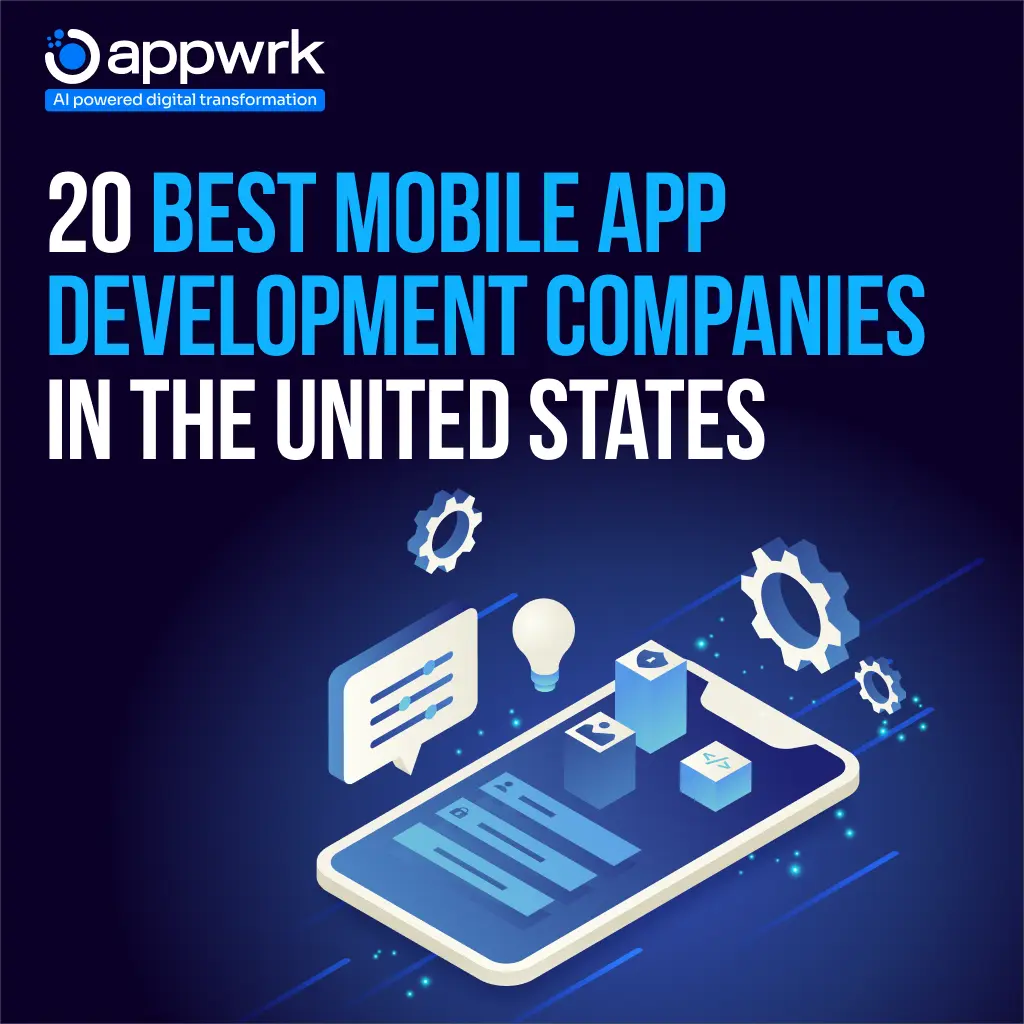Is Hybrid App Development Good for Android and iOS?
Table of contents
- What Is Hybrid App Development?
- Key Benefits of Hybrid App Development for iOS and Android
- How Much Does Hybrid App Development Cost?
- 5 Best Examples Of Hybrid Apps
- 5 Most Popular Hybrid App Development Tools for iOS and Android
- How To Choose The Best Hybrid App Development Company For Your Business
- Summary
What Is Hybrid App Development?
Hybrid app development, also known as cross-platform app development, is a means to develop applications that run on multiple platforms such as iOS, Android, and Windows. The hybrid apps has a single code base that works on several platforms.
Hybrid app development is the most successful framework for developing cross-platform apps. Several components combine to form this framework successfully. Such elements are front-end tools and languages such as HTML5, JavaScript, & CSS, code frameworks, and APIs.
Key Benefits of Hybrid App Development for iOS and Android

A few elements help you decide the best framework for your application for better outcomes. Look at the some of the benefits and adopt the framework for your next best application on platforms such as iOS and Android.
Benefit #1: Wider Reach via Multiple Platforms
An app built with a hybrid app development process is capable of gaining a broader customer base due to multiple platform compatibility. It enables an app to run on android and iOS platforms.
Benefit #2: Only One Codebase To Manage
The hybrid app development process facilitates code base reuse. It is difficult to use the same code on several platforms due to compatibility issues. The top hybrid mobile app development frameworks use C++, HTMLI5, JavaScript, and CSS elements, thus making it easier to share the code on multiple mobile OS. Therefore, it becomes easy to have a mobile app on several platforms using hybrid frameworks.
Benefit #3: Short-Time-to-Market
One of the most competitive benefits of hybrid app development is its ability to provide a short time to market the app. The hybrid app development process takes significantly less time than a native app. This is possible because the developer utilizes the code again for different platforms where they majorly share the code.
Benefit #4: Economical Development Cost
Hybrid mobile app development is more cost-effective than native apps. However, the cost could add up if they have only one developer or a small team. Businesses can focus on hybrid app development by using hybrid web technologies at a fraction of the cost of developing a native app.
Benefit #5: Offline Availability
In hybrid app development, the user can use the application without any connectivity to the internet. They can access previously loaded data even if they cannot use the app in real-time or load any new information.
How Much Does Hybrid App Development Cost?
As discussed above, hybrid app development does not require two separate codes for building applications on different platforms. Instead, a single codebase is enough to build a hybrid application that can work on multiple platforms. This significantly reduces the time and cost of building two different applications.
If you are wondering about the cost of building a hybrid mobile application, it depends on multiple factors such as features, functions, and scale. On average, a hybrid mobile app development may cost you about $30,000-60,000, or more, depending on the requirements of your business.
Nevertheless, these hybrid mobile apps are new to the market, so people are more concerned about their pricing. But in reality, hybrid app development is more affordable than Native application development.
5 Best Examples Of Hybrid Apps

Example #1: Instagram

Instagram is one of the most popular social media networks. It is a multi-platform app and receives millions of hits every day. It is crucial for Instagram to give its users a wonderful experience. Because of hybrid technology, users can now have online and offline access to Instagram. It is one of the most powerful tools in this modern world. Some features include IGTV for videos, reels, messages, etc.
Example #2: Uber

Another inspirational example of hybrid app development is Uber. Uber was once the fastest-loading hybrid app. The app has various complex functions like location, payment gateways, variety of vehicles, etc., to make the customer experience the best.
Example #3: Gmail

Checking e-mail has become a daily task for everyone. And Gmail has made it easy for you, as it has brought a new prospect to hybrid app development. Gmail has many features like multiple accounts supporting, spam marking, automatic blocking of the unknown or spam, classifying messages, etc.
Example #4: Evernote

Evernote is a hybrid app with excellent performance. The interface is designed to provide excellent service to the customer. The users can utilize the camera, scanning, self-design, note sharing, and discussion. The app has an in-built security system via VPN and firewalls to protect the user’s phone. Another security feature includes TOTP and Google authenticators to verify the user.
Example #5: Twitter

Twitter is the most successful example of hybrid app development, with almost 187 million active users. Twitter is smooth and speedy, which you can measure by the heavy traffic it attracts. Some exciting features are a live video option, tweeting, offline mode posting, recommendations, etc.
5 Most Popular Hybrid App Development Tools for iOS and Android

#1: React Native
| Pros | Cons |
| Usable on various platforms | Debugging limitations |
| Comparatively faster development | Lack of custom modules |
| Hot reload | High dependency on a professional react native |
| Reusability | Compatibility issues |
| Steep learning curve |
React Native is capable of rendering extraordinary mobile applications for iOS and Android. The React Native tool uses Android and iOS platforms’ building blocks for hybrid app development. One of the major benefits of using React Native is that the user does not have to build the app from scratch. Some key benefits are:
- The user can write the code once and use it on multiple platforms.
- Support from various third-party libraries.
- Comes with a specific set of JavaScript functions known as Native Modules.
#2: Flutter
| Pros | Cons |
| Relatively faster development | Still a young framework |
| Hot reload – immediate results | Flutter app are heavy and quite large |
| Customization & rendering capabilities | No single guidelines for flitter app development |
| Separates UI from Native controls |
Flutter is appearing as one of the most popular hybrid app frameworks. Flutter has brought many possibilities and a new app development approach. With Flutter, the user can quickly build effective UIs and resolve bug issues. Flutter hybrid app development is incorporated with a ready-to-use and highly functional widget collection. The flutter tool is easily scalable and flexible.
#3: Ionic
| Pros | Cons |
| Single codebase | Native app performance issues |
| Ease of learning | Overly dependent on plugin |
| Integration capabilities & plugins | No hot reloading |
| Concise documentation | Security concerns |
| Strong community | Increased app size |
Ionic is built using multiple technology layers for hybrid development with an impressive interface and features. The bottom layer of the tool deploys Angular JS, and on the top layer, the framework has Apache Cordova. Therefore, it is understood that Ionic combines different technologies for app development that have both web and native app features.
#4: Xamarin
| Pros | Cons |
| Native UI, API, & performance | Creates large applications |
| Visual Studio tools are easy to use | Can only use Visual Studio |
| Complete UI customization | Limited functionalities |
| Leverages common enterprise knowledge of C# & .Net | Not loved developers |
| Strong community |
Xamarin is one of the best frameworks for creating high-performing hybrid mobile apps. Xamarin, a hybrid app development framework, is based on the Microsoft technology stack. The framework provides a native user experience and 95% code reusability. Some of the prominent features of Xamarin are:
- Xamarin uses C# language to create tailored apps.
- Xamarin uses C# and native libraries to build engaging apps.
- Compatible with both iOS and Android platforms.
#5: PhoneGap
| Pros | Cons |
| Open-source platforms | Large graphics affect the app’s performance. |
| Uses single codebase to build the app | Requires extensive testing |
| Plugins allow access to camera, contacts, etc. | Documentation is not very descriptive |
| The user interface is the same on all platforms | |
| Developer-friendly platform |
Phonegap is an open-source platform distributed by Cordova. The framework uses a single codebase compatible with multiple platforms, such as iOS and Android. The framework provides native plugins and containers for the users to access the camera, compass, etc. Once the application is ready, run it in a WebView browser on a suitable platform.
How To Choose The Best Hybrid App Development Company For Your Business
There is no perfect answer to this question. However, one must consider some key points before choosing a hybrid app development company. Below are some of them:

1. The Platform of Your App
Before landing on one app development company, ensure the organization has hybrid app developers because not every company knows about developing apps on multiple platforms. Choose a company that has experience in the hybrid app development process.
2. The Features of Your App
Once you have a list of features you want in your app, thoroughly explain them to the developer. Enquire whether the developer is capable of taking up complex hybrid app development. If the response is positive, go ahead with the project.
3. The Timeline for Development
When choosing a hybrid app development company, question the procedure and timeline. Ask the organization whether they can deliver the product in time. You can also check their reviews and then make your decision.
4. The cost of Hybrid App Development
Although hybrid app development is cheaper than native app development procedures, it still comes at a price. Select a firm that can work per your budget. Prepare a budget in advance and ask about the company charges.
5. The Technical Support Service
The task is not over until after the app is successfully ready. Once in a while, there is a requirement for technical support. Therefore, before hiring a hybrid app development firm, ask about the after-support services. Collect reviews from the customers and choose the firm.
Summary
To conclude, there is no denying that the strengths of hybrid app development technology are outstanding. Hybrid app development has become the new normal. More and more businesses are looking forward to developing hybrid apps. These kinds of apps are suitable for iOS and Android because there is no need to write different codes for one mobile app. Now, if you are wondering how this will work? Get in touch with the best mobile app development company and get a free estimate now. At APPWRK IT Solutions, we ensure the best services and guidance under an experienced team. You can also hire a dedicated Android developer or hire iOS developer for your project. If you have a very big platform specific project to be made, then consider hiring android app development company or iOS app development agency.
About The Author







 Free Quote
Free Quote
















































